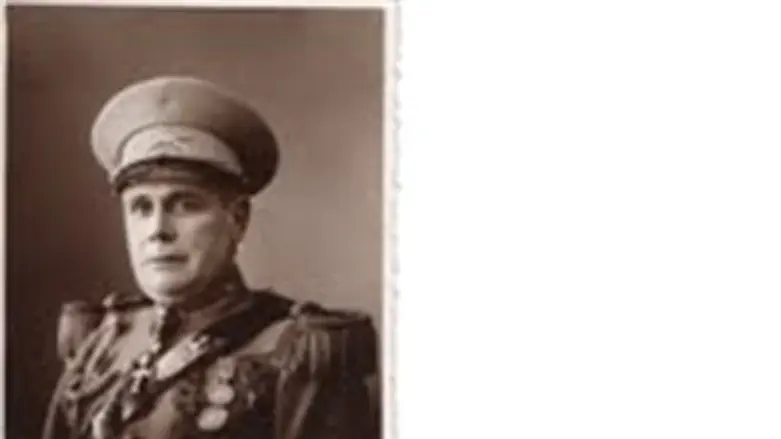
It took 75 years, but finally, at the end of July 2012, an act of grave injustice and anti-Semitism has been corrected.
More than 50 years after his death in 1961, the founder of the Jewish community in Porto, Artur Carlos de Barros Basto, was posthumously reinstated into the Army in a unanimous decision by the Portuguese parliament.
This ends the decade long campaign for his rehabilitation, which had been undertaken mainly by his relatives.
“This means the end to a struggle that had been pursued by my grandfather, my grandmother, my mother and myself”, the granddaughter of Barros Basto and vice-president of the Jewish community in Porto, Isabel Ferreira Lopes, told Arutz Sheva. She went on to emphasize that the privations and sufferings of her grandfather were now officially recognized and therefore "not completely meaningless".
Barros Basto is called the “Portuguese Dreyfus”.after French General Staff officer Alfred Dreyfus, a Jew who was wrongly accused and convicted of treason in 1894 due to anti-Semitism.
In 1937, decorated World War I veteran Barros Baslo was convicted, sentenced by a Portuguese military court and expelled from the army.
The trumped up allegations were that he had performed circumcisions and maintained amorous relationships with male students. The ruling was based only on denunciation, hearsay and resentments.
The real reason was that Barros Basto was no longer willing to practice his faith in secret the way his forefathers, the so called crypto-Jews, had done in order to survive.
He was a proud Jew and helped to build the largest synagogue on the Iberian Peninsula and the first yeshiva in 500 years. This, of course, was unthinkable in a country ruled by a fascist dictatorship with close ties to the Catholic Church.
The dishonorable discharge broke Barros Basto mentally, physically and financially. Only he and his family fought this act of anti-Semitism. There was no Portuguese Émile Zola, as there was in Dreyfus' day, who would publicly denounce the injustice. Even after the fall of the dictatorship in 1974, the family was not able to get a retrial.
The reinstatement is mainly due to the efforts of Isabel Ferreira Lopes, who worked tirelessly in recent years to restore the honor of her grandfather. Lopes was supported by the Israeli organization Shavei Israel, headed by Michael Freund, which is devoted to finding and aiding so-called “Lost Jews” all over the world.
In the case of Barros Basto, Shavei Israel published an online petition, using new electronic media opportunities and thereby making a strong public case for rehabilitation.
The American Anti-Defamation League also called for a rehabilitation of de Barros Basto, and ultimately Lopes managed to win over important Portuguese political and judicial personalities, and a team of lawyers who would fight for rehabilitation.
The result of this campaign was that in February 2012 a parliamentary commission unanimously adopted a report which recognized the anti-Semitic background of the ruling and called for a rehabilitation of de Barros Basto.
And at the end of July, the Portuguese Parliament finally followed the advice and officially reinstated de Barros Basto, 51 years after his death.
With the rehabilitation. a dark chapter of recent Portuguese history is closed. Now, Isabel Lopes and the Jewish community in Porto can turn to the future.
The writer is a doctoral candidate in philosophy, witing on the Jewish-American philospher Horace M. Kallen. He is a frequent contributor to the German blog "Die Achse des Guten" (www.achgut.com) and to Arutz Sheva. The picture of Basto was sent to Arutz Sheva by his granddaughter.